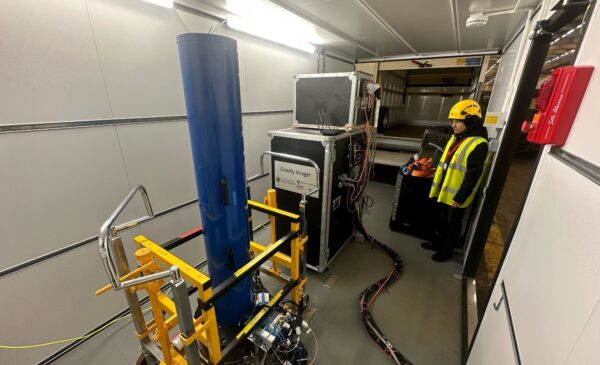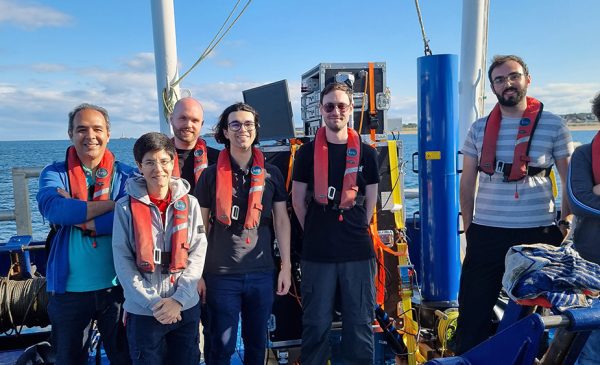Last week, University of Birmingham physicists and engineers from UK Quantum Technology Hub Sensors and Timing departed the UK on ship alongside Dstl scientists to continue the next phase of quantum experiments that could pave the way for advanced positioning and navigation tools at sea.
The team are undertaking field trials in cold atom manipulation and atom interferometry experiments to help evaluate the effects of ship vibration, motion, and acceleration, onboard the commercially operated ship, Hurst Point. The expected outcome of this phase is to demonstrate successful extended operation at sea and understand and improve the underpinning atomic performance, laying further foundations to leverage quantum mechanics for extremely accurate positioning and navigation tools of the future, which are not dependant on Global Navigation Satellite Systems (GNSS).
“We are excited to be leading this project which could pave the way for enhanced quantum capability for the Royal Navy. Building upon developments in the UK National Quantum Technology Programme, including projects funded by the Engineering and Physical Sciences Research Council, Dstl and Innovate UK, this next phase of trials will provide the team with valuable insight into future real-world applications at Sea, and the associated challenges this presents.”Professor Michael Holynski, Principal Investigator at the UK Quantum Technology Hub Sensors and Timing
“The convergence of the traditional sciences with quantum phenomena will greatly disrupt conventional technology across many operational capability areas, causing evolutionary and revolutionary change. Quantum technologies have the potential to solve some of Defense’s most pressing problems, improve our operational advantage, and pave the way to new yet realised opportunities. In this experiment, we are advancing novel navigational techniques towards a fully resilient satellite free capability.”Chester Butterworth, Deputy CTO, MOD Project Lead
The Chief Technology Officer, Brig Jamie Roylance, supported by the Office of the Chief Technology Officer (OCTO) aims to capitalise on the burgeoning strength of UK quantum research to accelerate the applicability and readiness of quantum technology for maritime applications.
By working in collaboration with partners such as the UK Quantum Technology Hub, Innovate UK, Engineering and Physical Sciences Research Council, and Dstl, the Royal Navy aims to conduct, and support maritime relevant research, development, and experiments. The aim of the OCTO team is to bridge the valley of death, to pivot early, incubating high value opportunities to accelerate the Royal Navy on a pathway towards alternative, highly precise, quantum technologies of the future.




